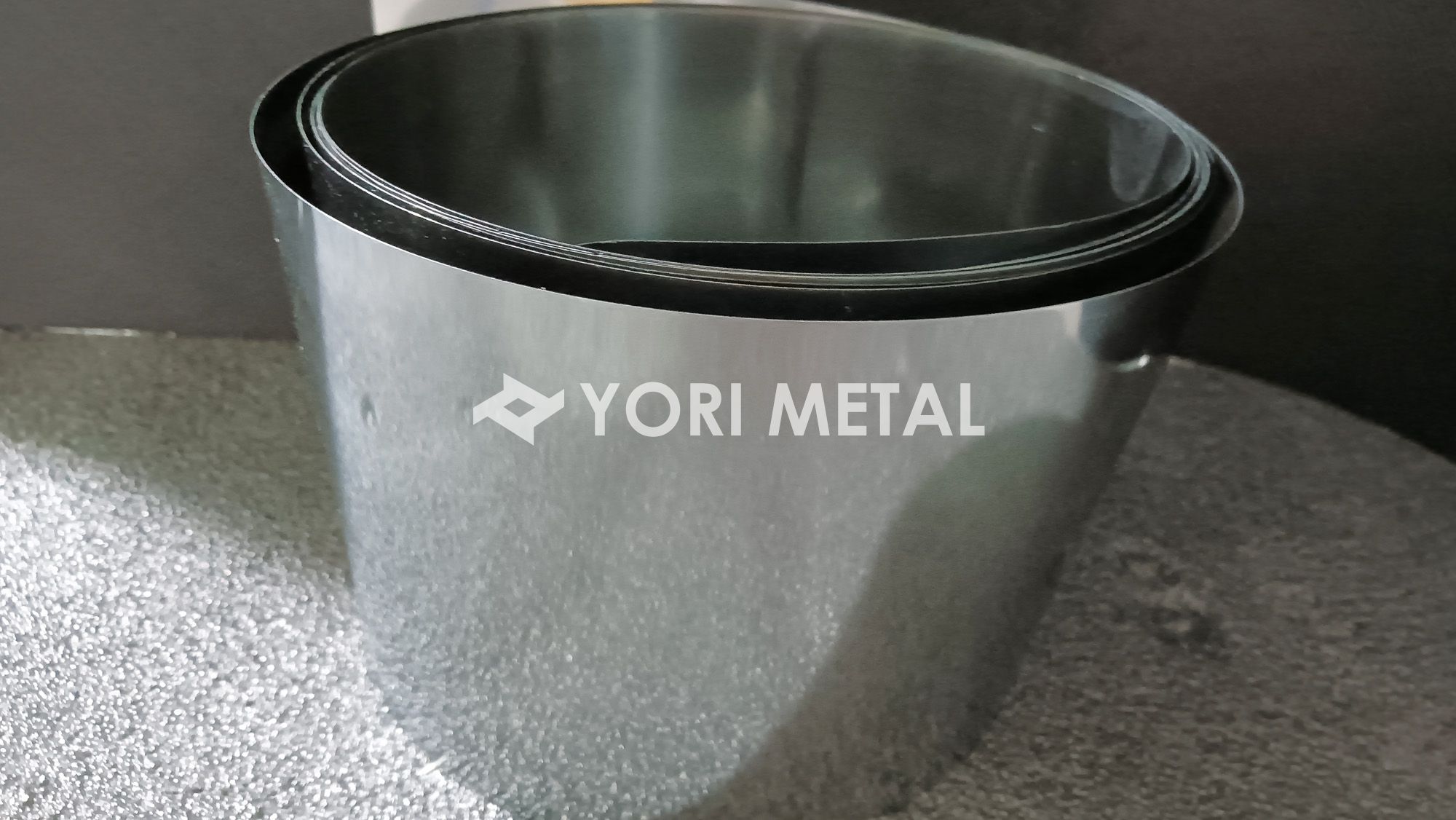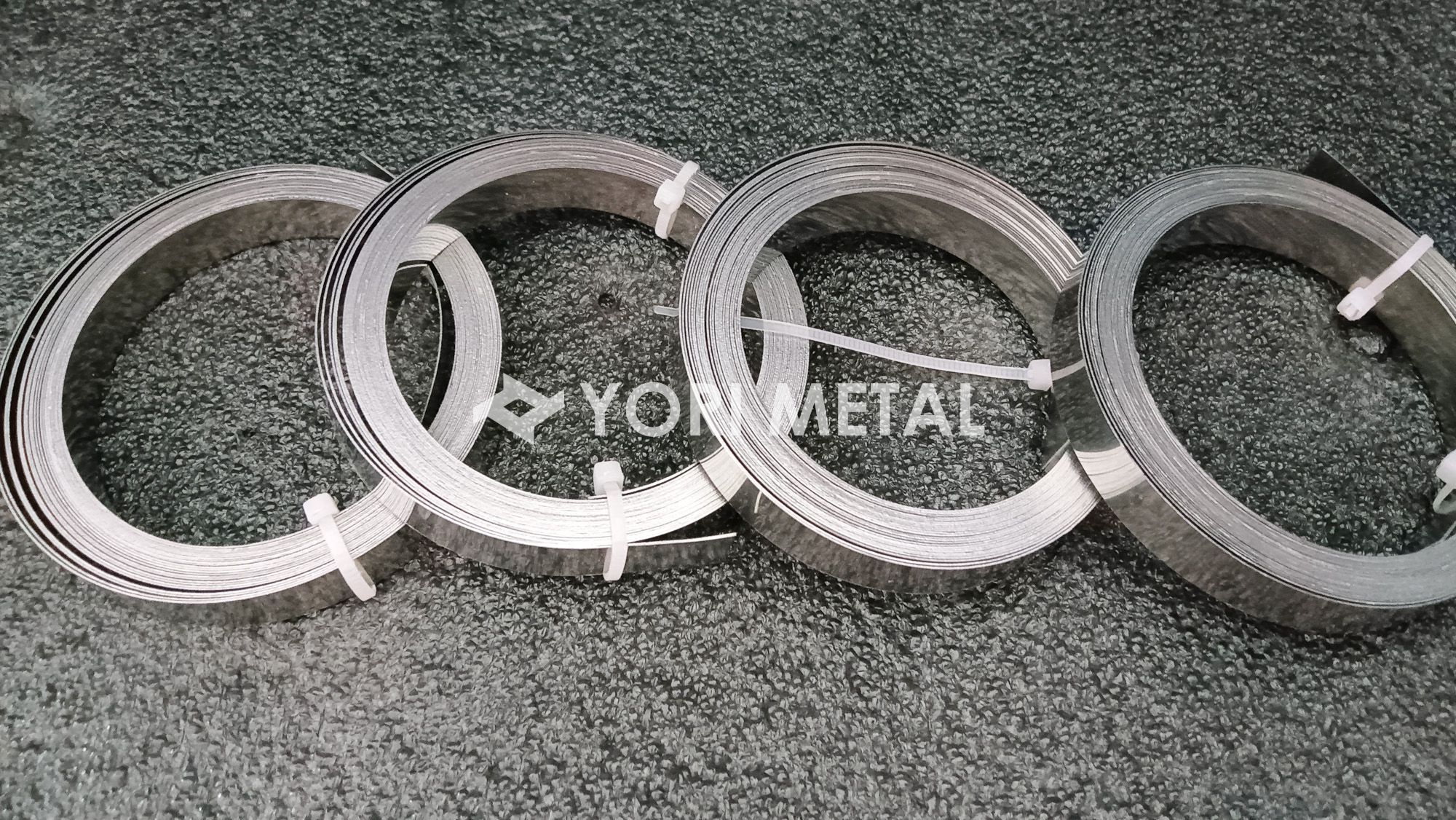
Nitinol strip & ribbon

1.Specification details
| Available size | Thickness range 0.07~1mm Width 10mm-150mm Length ≧ 3000mm |
| Tolerance | Thickness ±0.02mm Width 0,+2mm Length 0,+5mm |
| Category | Super-elastic/Shape memory alloy;Cold-rolled ; Strip/Ribbon |
| Af temperature | -30℃~100℃ |
| Grade | Niti,NitiCu,NitiFe,NitiCr,NitiNb,etc |
| Standard | ASTM F2063-2012;ASTM F2063-2018 |
| Condition | Annealing/Cold-rolled |
| Nitinol strip material is widely used for medical application and industry application . Medical application: Shape setting working parts ,Orthodontic Files ;stamping processing parts, etc. Industry application : stamping parts, drawing process working parts etc. | |
2.Nitinol Glossary
The following technical terms and their definitions are essential for understanding Nitinol and the concepts presented in this document. For an extensive list of standard terminology it is recommended to reference ASTM F2005 – Standard Terminology for Nickel-Titanium Shape Memory Alloys.
Active austenite finish temperature (Active Af) – term for austenite finish temperature of raw wire, tube, sheet or semi-finished component as determined by bend and free recovery (BFR) test method described in ASTM F2082. The active Af is often preferred when specifying thermal properties of a component as it is more representative of performance in application.
Austenite – the high temperature parent phase of the Nitinol alloy having a B2 crystal structure.
Austenite finish temperature (Af) – the temperature at which martensite (or R-phase) to austenite transformation is completed on heating of the alloy.
Austenite peak temperature (Ap) – the temperature of the endothermic peak position on the differential scanning calorimetry (DSC) curve upon heating for the martensite (or R-phase) to austenite transformation.
Austenite start temperature (As) – the temperature at which the martensite (or R-phase) to austenite transformation begins on heating of the alloy.
Free recovery – unconstrained motion of a shape memory alloy upon heating and transformation to austenite after deformation in a lower temperature phase.
Lower plateau strength/stress (LPS) – the stress
Lower plateau strength/stress (LPS) – the stress measured at 2.5 % strain during tensile unloading of the sample, after loading to 6 % strain per the method described in ASTM F2516.
Martensite – the lowest temperature phase in Nitinol shape memory alloys with a B19’ (B19 prime) monoclinic crystal structure.
Martensite deformation temperature (Md) – the highest temperature at which martensite will form from the austenite phase in response to an applied stress. At temperature above Md the Nitinol shape memory alloy will not exhibit supe



